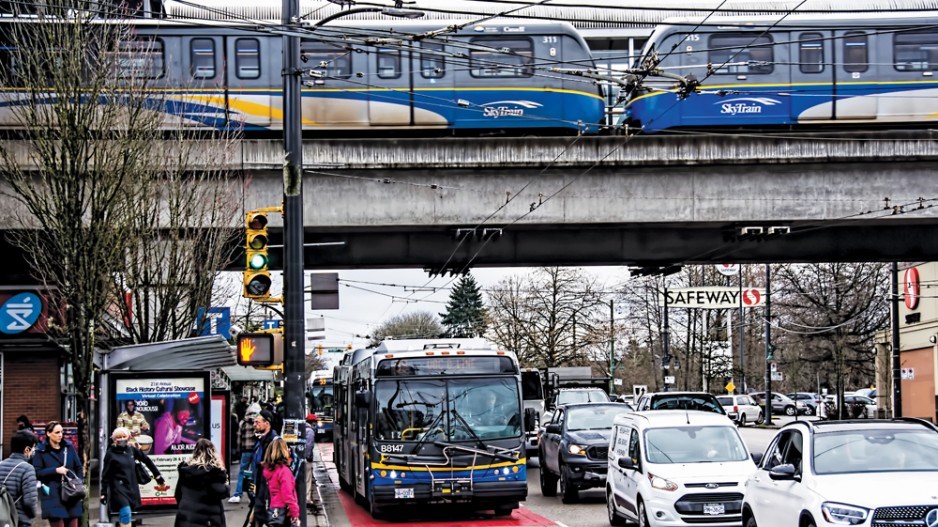TransLink is turning its attention to real estate development as it attempts to make up for lost revenue in the pandemic.
The regional transit authority announced June 23 it was launching a real estate development program that would see it build both commercial and residential projects near transit sites.
TransLink CEO Kevin Quinn described it as a “creative way” to boost revenue as it tries to lure more riders back to the system after ridership levels plummeted at the outset of the pandemic. Its goal is to get ridership back up to 80 per cent of pre-pandemic levels by this fall.
TransLink is projecting revenue losses of $216 million this year.
“We will still need to identify more long-term funding solutions,” Quinn said in a statement. “But this program will improve people’s access to transit, create more transit-oriented communities and generate new long-term revenue to help us improve and expand our system.”
The new initiative represents a more active role in the development process than in the past, when TransLink would simply sell or lease property to developers to generate revenue for transit development.
Proceeds from the sale of surplus property are deposited into a "land reserve," which held $236.9 million as of Dec. 31, 2021. An additional $131.1 million has yet to be received from the $440 million sale of the Oakridge transit centre property in 2016.
The reserve, created a decade ago, typically funds property acquisitions for transit infrastructure projects, such as bus loops and SkyTrain lines.
The reserve fund is overseen by TransLink's real estate division, which is also responsible for working with developers that wish to better integrate their properties with transit infrastructure. The real estate division will now be ablwe to enter joint ventures with both public and private partners to develop real estate projects directly.
"TransLink’s real estate division previously focussed on property acquisition, leasing, and disposition activities that supported operations and capital projects. That focus has now been broadened to include building residential, commercial, or mixed-use developments near transit," TransLink told Western Investor.
“By developing near transit, TransLink will be helping to create transit-oriented lifestyles and communities throughout Metro Vancouver," TransLink chief operating officer Gigi Chen-Kuo, who oversees the real estate division, said in a statement.
The agency said it would be looking to best practices in other regions, such as Paris, London and Hong Kong, that have implemented similar programs.
"While this program is in its early days, we are currently looking into development opportunities and will release information about specific potential projects in due course," TransLink said.




